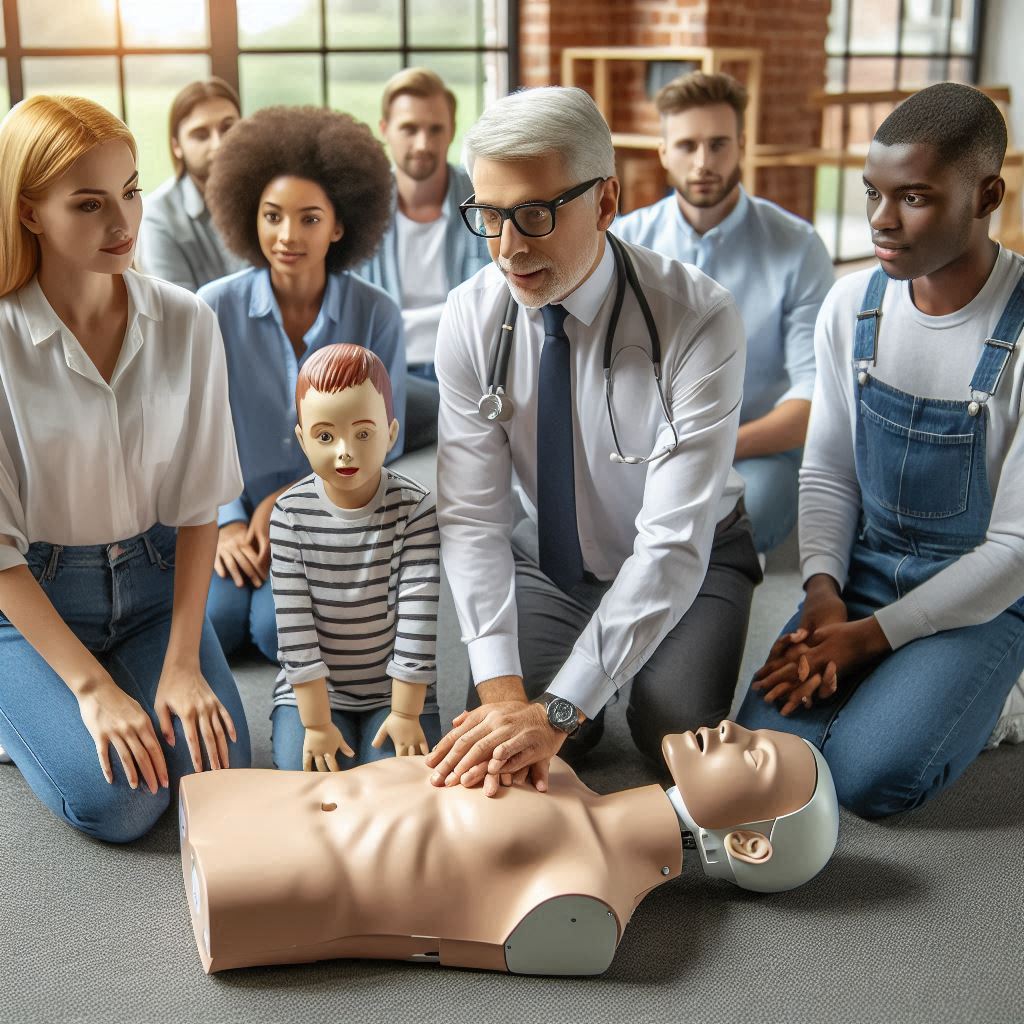Welcome To Nursesvue Careertek institute

The CPR / Basic Life Support certification program at Nursesvue CareerTek is designed to equip healthcare professionals with the knowledge and skills required to respond effectively to cardiac and respiratory emergencies. Whether you’re a nurse, caregiver, or concerned community member, this program ensures you’re prepared to save lives. Learn hands-on cardiopulmonary resuscitation (CPR) techniques, including chest compressions and rescue breaths.Understand the importance of early intervention in cardiac arrest scenarios. Our program combines online modules with in-person skills practice. Complete the theoretical portion online at your own pace. Nursesvue CareerTek isn’t just a school; it’s a launchpad for compassionate caregivers. Whether you’re enhancing your existing skills or starting anew, our CPR certification program empowers you to make a difference.

For courses that teach CPR, you’ll need to complete an in-person skills practice and testing session with an instructor after the online portion.
During this session, an instructor will evaluate your skills.
Upon successful completion of both the online and hands-on portions, you’ll receive a course completion card valid for two years.
Before embarking on your CPR certification journey, decide what type of certification you need. There are various levels, including:
Basic Life Support (BLS): For healthcare professionals (e.g., nurses, EMTs).
Heartsaver CPR/AED: For laypersons, workplace responders, and community members.
Pediatric CPR: Focused on infants and children.
Research and enroll in an accredited CPR training program. Look for reputable providers such as the American Red Cross, the American Heart Association, or local healthcare organizations.
Consider whether you prefer in-person classes (with hands-on practice) or online courses (with in-person skills testing).
Register for the chosen course. Ensure it meets your specific needs (e.g., BLS, Heartsaver, or pediatric).
Attend the scheduled classes, where you’ll learn essential skills:
CPR techniques: Chest compressions, rescue breaths, and AED use.
Choking management: How to assist a choking victim.
First aid basics: Treating wounds, burns, and other emergencies.
Participate actively during the training sessions.
Some courses include a final exam to assess your knowledge. Passing the exam is essential for certification.
Many organizations now provide digital certificates for convenience.
With Red Cross Digital Certificates, you can access your certification anytime, anywhere.
Each certificate includes a unique ID and a QR code, making it easy for employers to verify its validity.
CPR certification expires after a certain period (usually two years).
To maintain your certification, renew it by taking a refresher course or attending recertification classes.
CPR certification is a crucial qualification that equips individuals with the skills and knowledge to perform cardiopulmonary resuscitation in emergency situations. This certification is typically valid for one to two years, depending on the issuing organization, and requires renewal to ensure that certified individuals maintain up-to-date knowledge of the latest CPR techniques and guidelines. The certification process usually involves completing a training course that covers both theoretical knowledge and practical skills, followed by an examination to assess the individual’s competence.
To obtain CPR certification, individuals can choose from various training providers, including well-known organizations such as the American Heart Association, American Red Cross, and other accredited training centers. These courses are designed to teach participants how to recognize and respond to cardiac emergencies, perform chest compressions, provide effective ventilation, and treat choking incidents. The training may be conducted in-person, online, or through a blended learning approach that combines online study with hands-on practice.
The importance of CPR certification extends beyond healthcare professionals to include individuals from all walks of life. It provides the confidence and preparedness to respond effectively in emergency situations, potentially saving lives within communities. For certain professions, such as lifeguards, camp counselors, and childcare providers, CPR certification is often a mandatory requirement. Additionally, many workplaces and organizations encourage or require their staff to maintain current CPR certification as part of their safety protocols.
To maintain certification, individuals must typically renew their CPR credentials every one to two years. Renewal courses are often shorter than initial certification courses and focus on refreshing skills and updating knowledge of any changes in CPR guidelines. The American Red Cross, for example, offers various options for renewal, including blended learning courses and in-person classes. Regular recertification is essential, as studies have shown that CPR skills can decline significantly within months of initial training, emphasizing the need for ongoing practice and education to ensure effective emergency response.